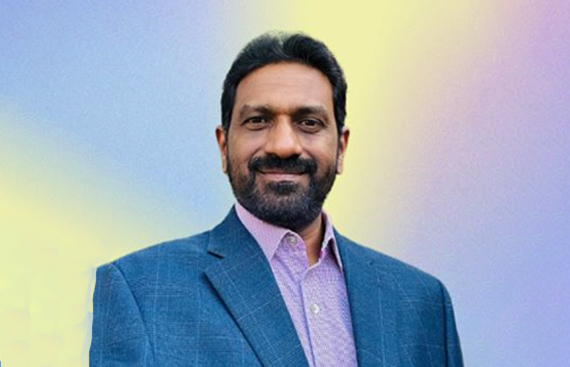The Intersection of HR Operations and Technology: In Conversation with Ramesh Nyathani

Considering the adaptive environment of business and its functionalities being dependent upon technological advancements, the fusion of Human Resource (HR) operations and technology has ushered in a transformative paradigm shift. It's a shift from viewing human resources as a primarily administrative function, concerned with compliance, record-keeping, and basic personnel management, to a dynamic arena that harnesses the power of technology to amplify its impact on organizations.
To delve deeper into this intersection, Mr. Ramesh Nyathani, a Digital Transformation Architect who leads the HR transformation journey at US Foods Inc. He has worked with Fortune Global 500 Companies such as Accenture and Deloitte in the past. Accounting for multiple laurels within the companies that he has been involved with, his role as an HR Digital Transformation Architect and Implementation Lead for cloud applications such as Workday has been instrumental in bridging the gap between HR's strategic goals and technological capabilities.
Mr. Nyathani emphasized that the incorporation of technology into HR operations facilitates a holistic approach to the employee lifecycle. Every interaction with employees, from pre-hire to retirement, becomes an opportunity to enhance their experience, foster engagement, and drive productivity. The traditional view of HR as a cost center has evolved into a recognition of HR's role as a value creator.
“One of the most evident outcomes of this integration is employee self-service. HR technology has empowered employees to take control of their HR-related tasks through user-friendly self-service portals.” he stated. “This empowerment allows employees to independently update their personal information, access pay stubs, enroll in benefits, and manage their own career development, reducing the administrative burden on HR professionals,” he added.
The ability to collect and analyze employee data is a revolution for the field of HR. It has transformed HR from a primarily administrative function into a strategic partner as HR professionals now possess the capability to provide actionable insights to business leaders including predicting trends, identifying potential challenges, and driving organizational strategy based on data-driven decisions. Its integration with technology has also enabled employees to access HR services, such as submitting time-off requests or updating personal information, from their smartphones. This improved accessibility and convenience have made HR more agile and responsive to the needs of a mobile workforce.
As organizations gain access to vast amounts of employee data, ethical concerns come to the fore. Striking the right balance between leveraging data for business benefits and respecting individual privacy rights is becoming an important consideration as maintaining trust and transparency in HR operations is paramount for an organization to function smoothly today. “Data Security can be bolstered through employing advanced authentication, implementing strict data encryption policies, and conducting regular security audits for a robust ethical data management framework. Ensure compliance with data protection laws through continuous monitoring and updating of data management practices.” - Mr. Nyathani highlighted.
Several events underscored the permanence of remote work and digital collaboration. HR technology plays a significant role in ensuring that teams, regardless of their physical location, feel connected, engaged, and aligned with organizational objectives. Mr. Nyathani believes that the role of HR in nurturing a remote workforce is now more critical than ever. “The transformation to cloud-based platforms like Workday is not just about adopting new software, it's about the changing workflows, roles, and essentially about Diversity and Inclusion,” he explained. Effective change management strategies are therefore not just desirable but essential for a smooth transition.
The future of HR technology will leverage predictive analytics to anticipate future workforce trends and make proactive decisions, including predicting employee turnover, identifying skills gaps, and optimizing workforce planning implying that technology has undeniably added immense value to HR operations, but it's crucial to approach it as a tool, not a replacement for the human element in HR. As Mr. Nyathani emphasized, the future of HR lies in the harmonious integration of tech-driven efficiency and human-centric empathy and connection. This intersection of HR operations and technology is not merely about streamlining processes but fundamentally transforming the nature of HR to better serve the organization and its people.
